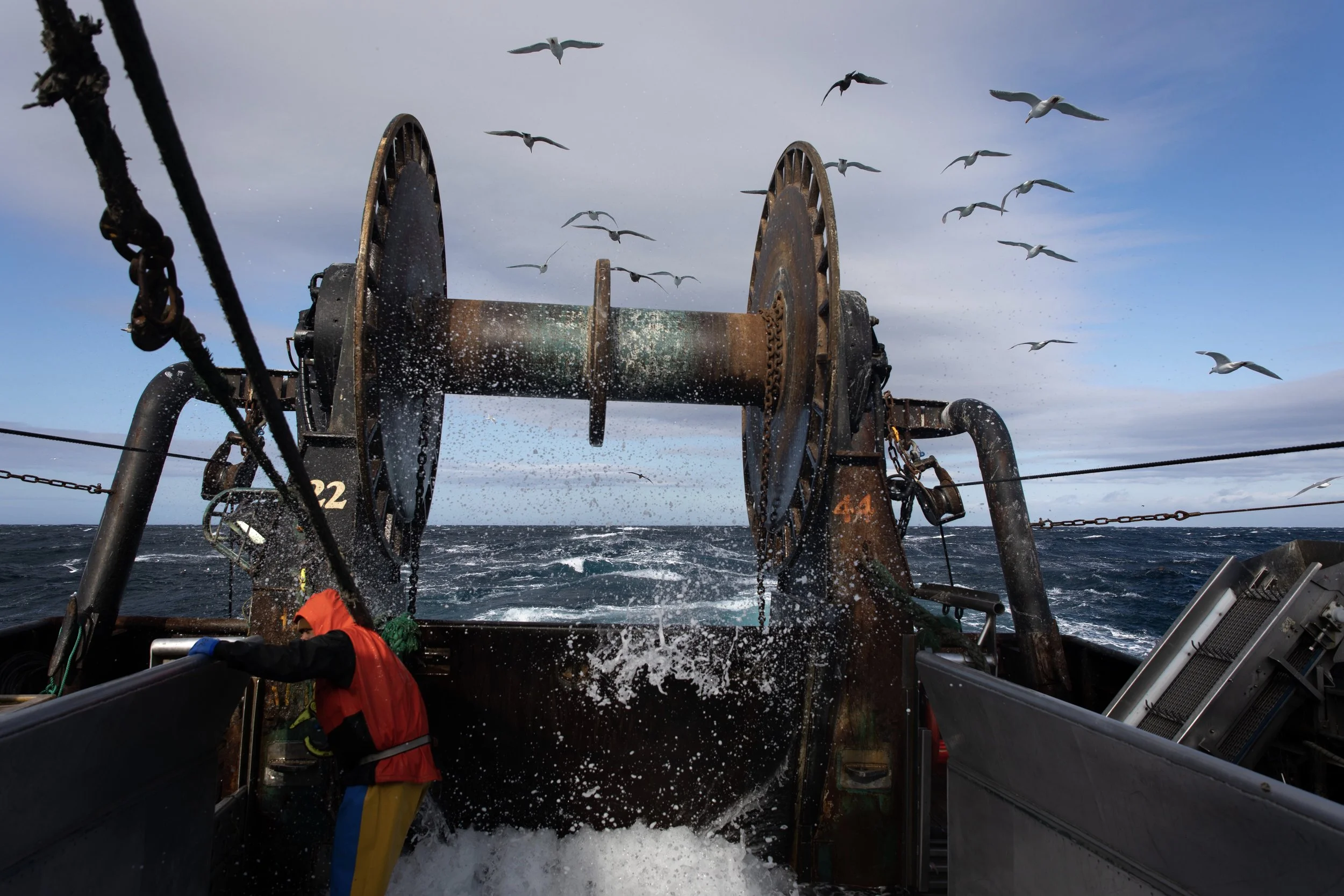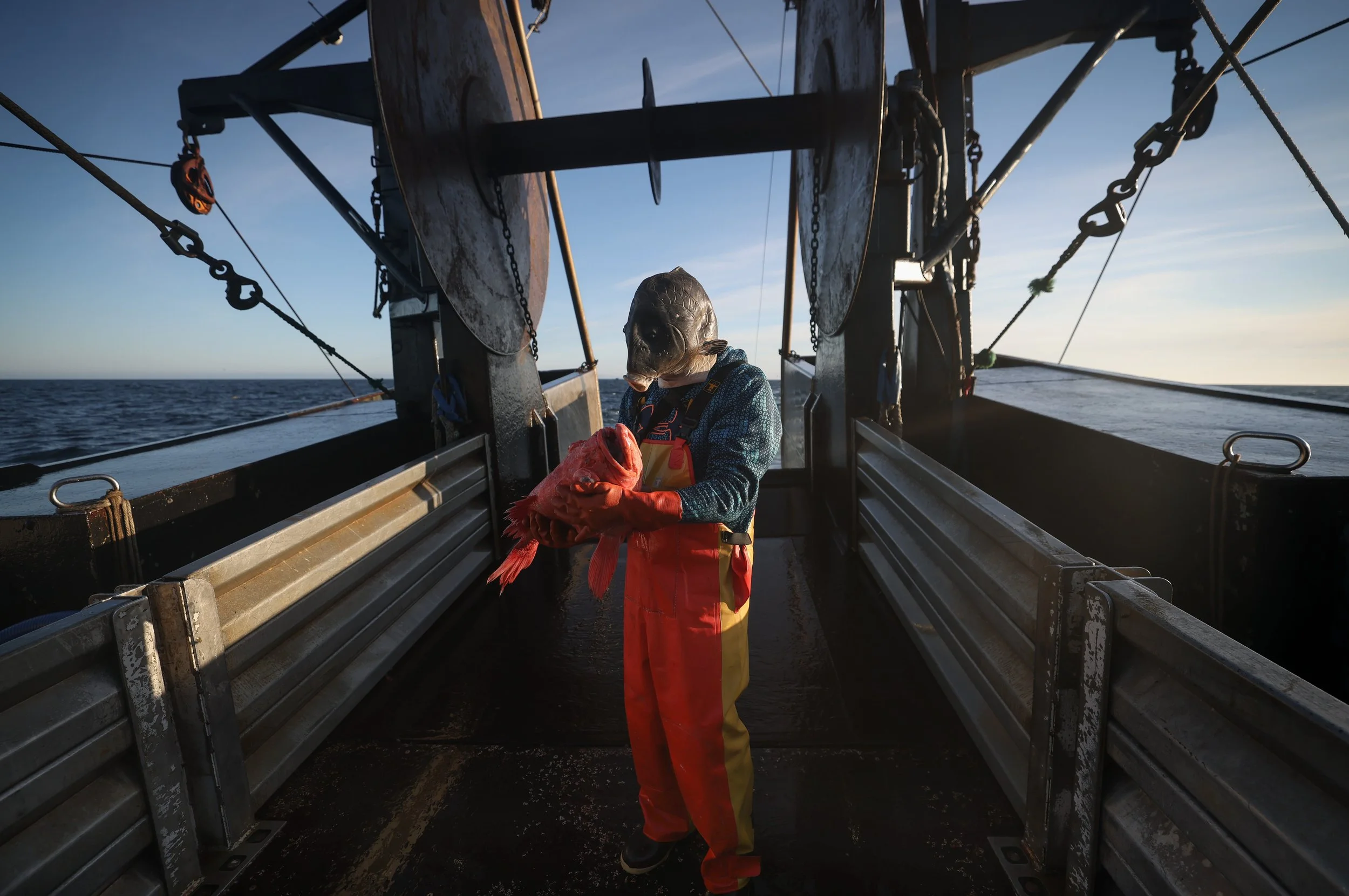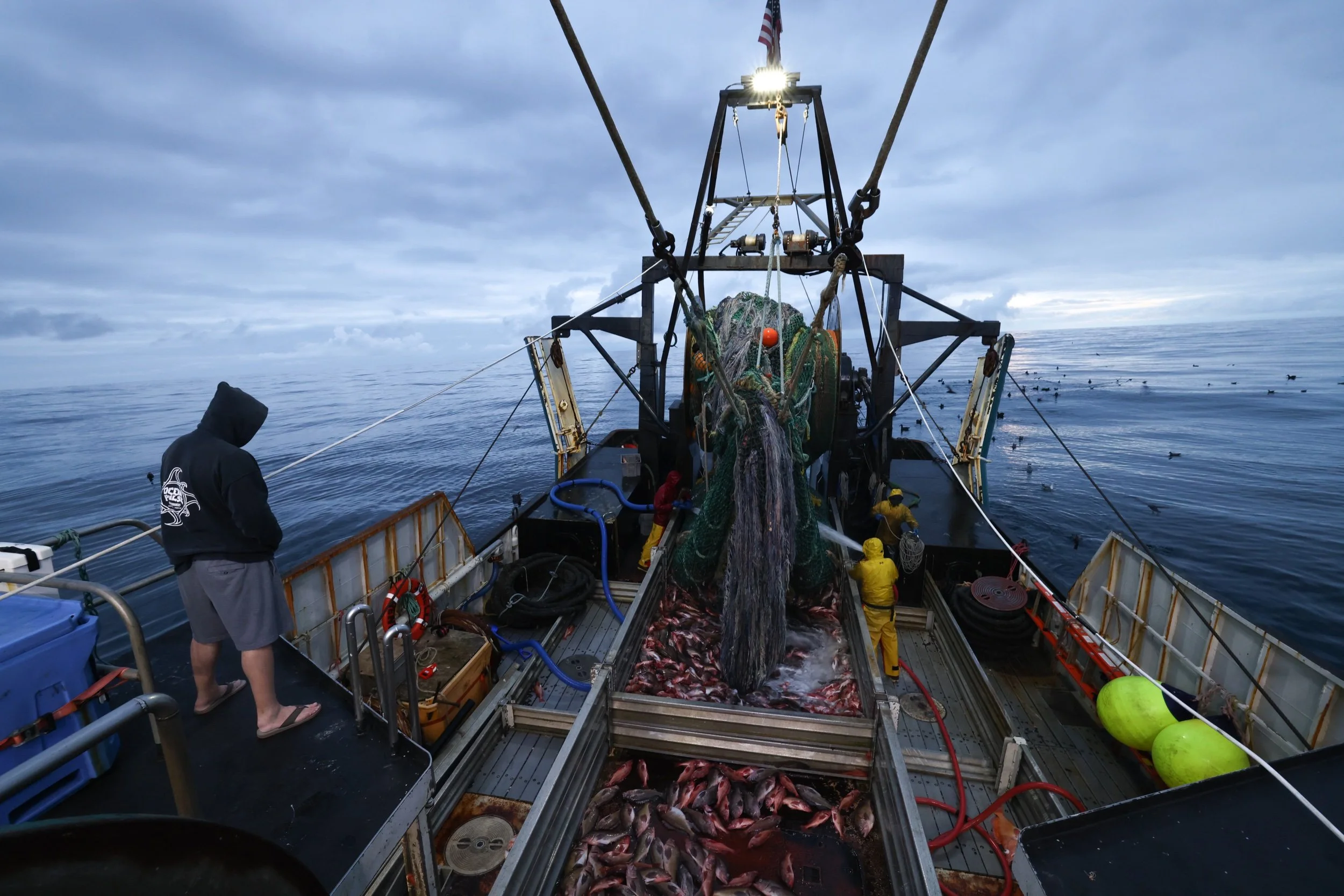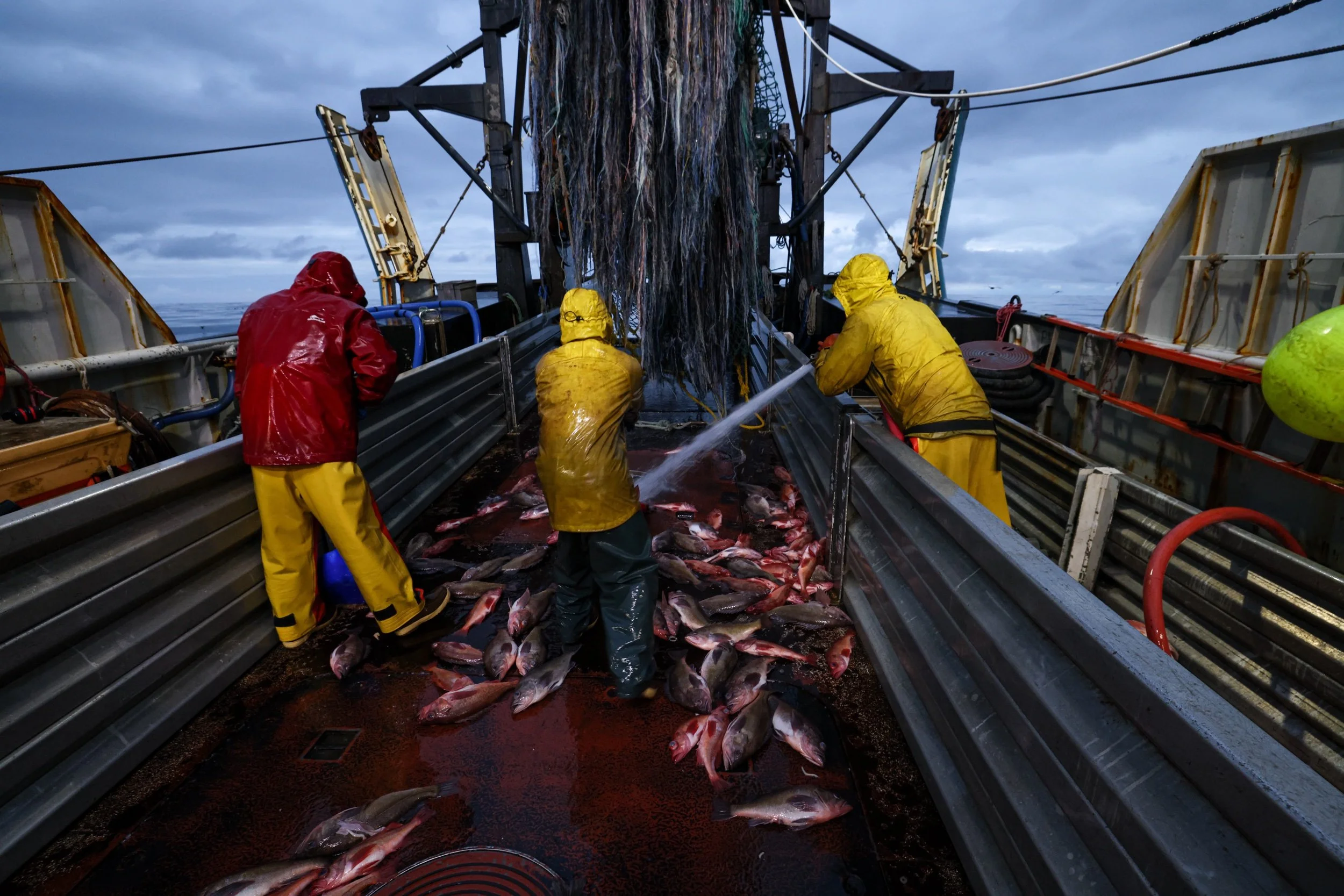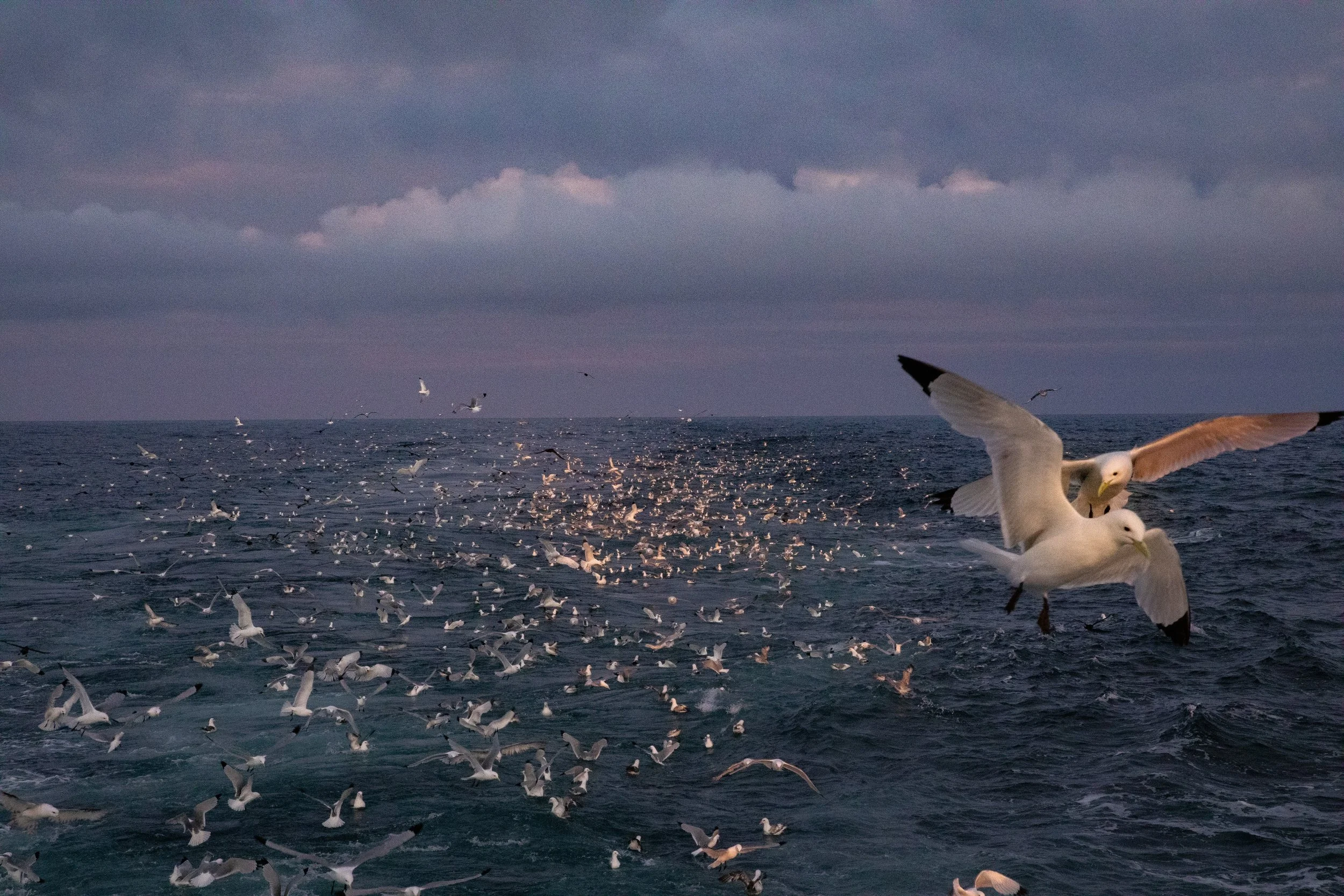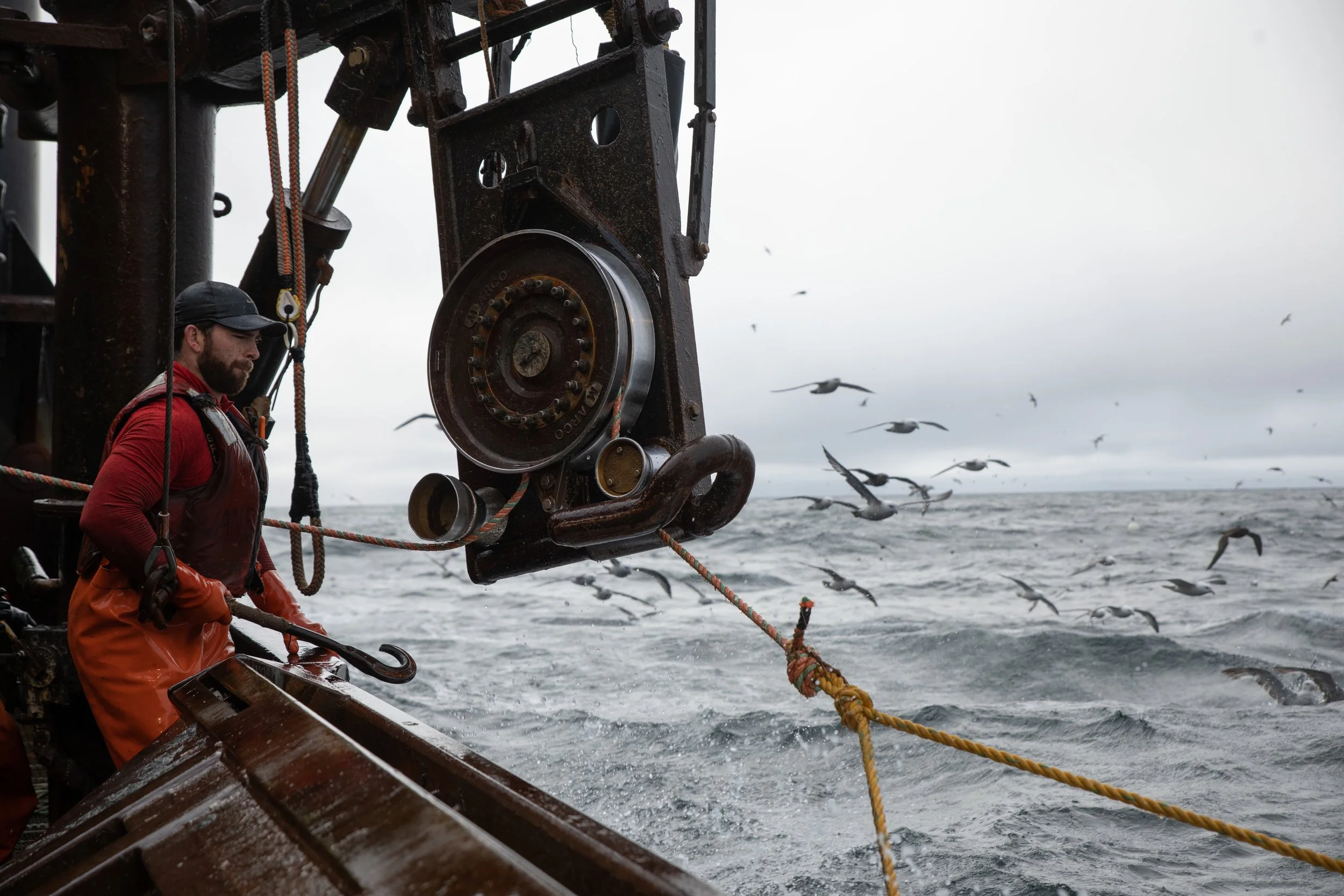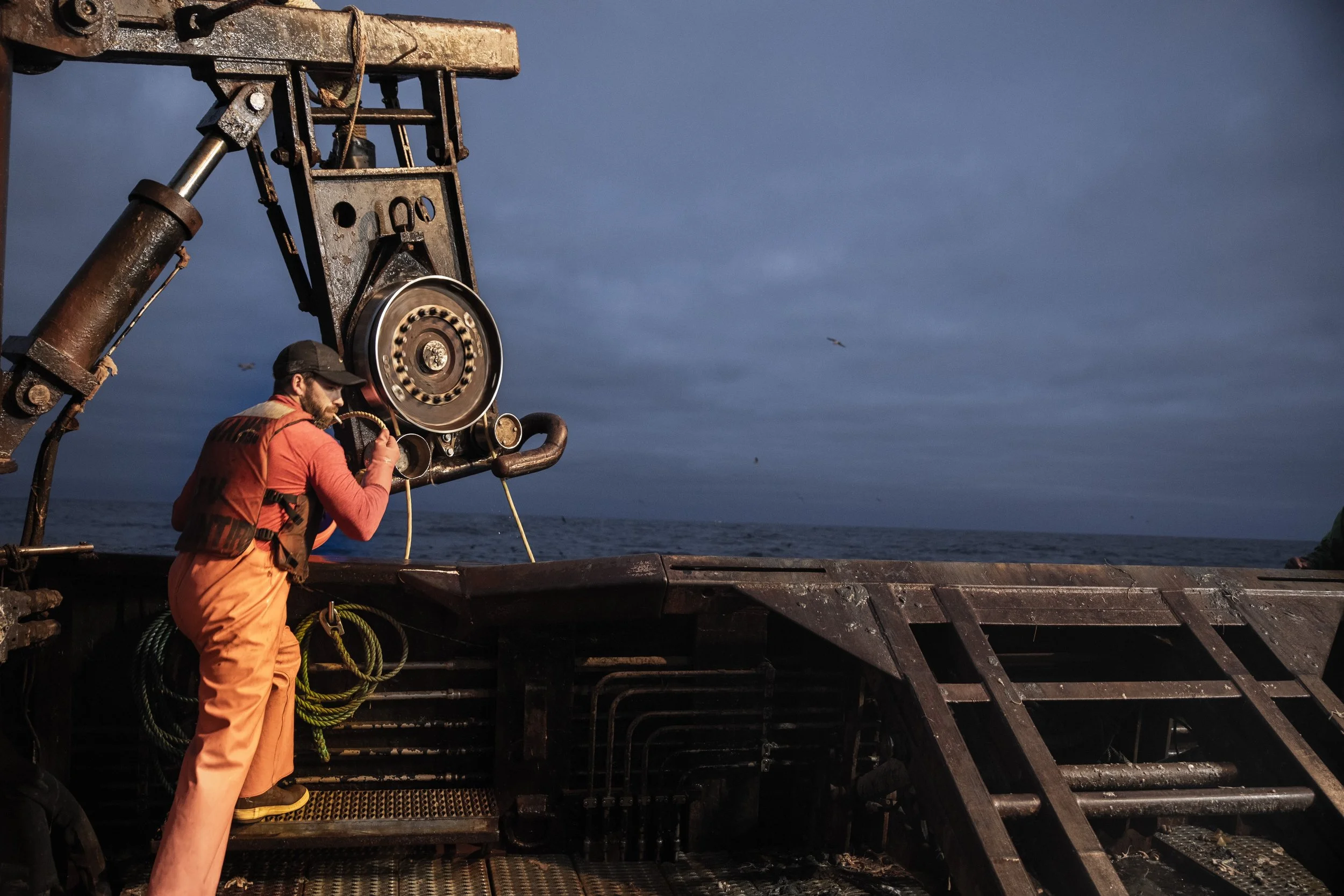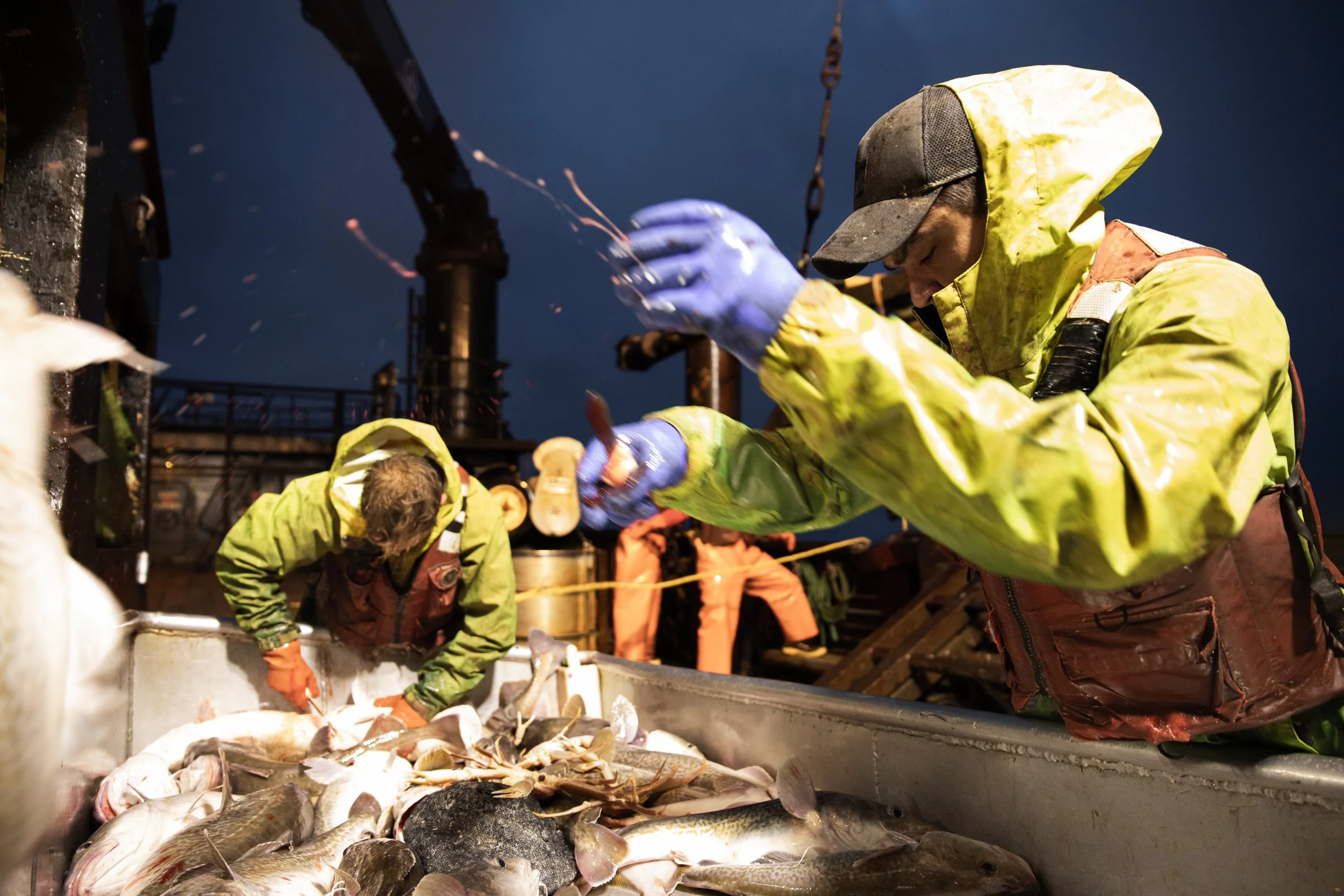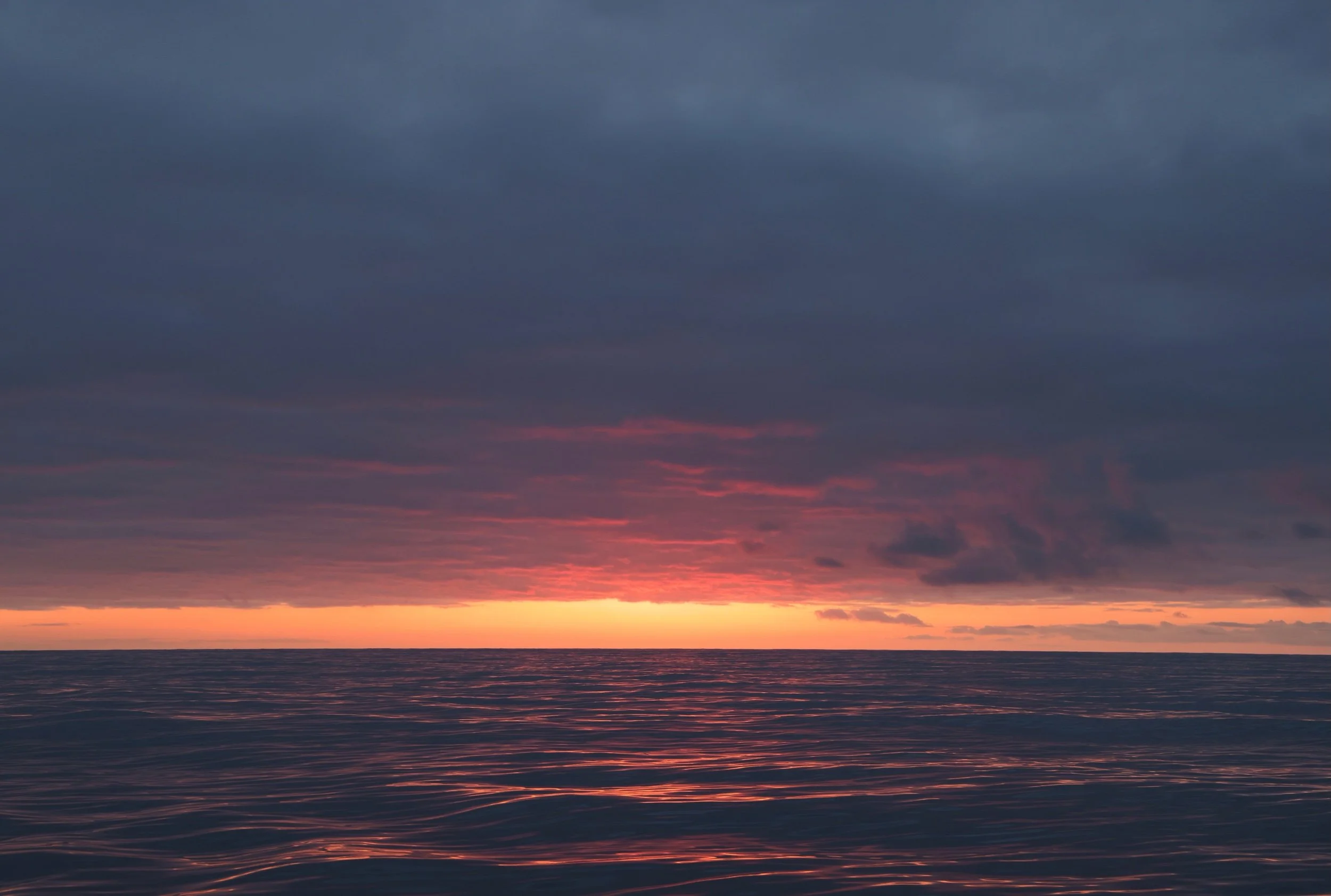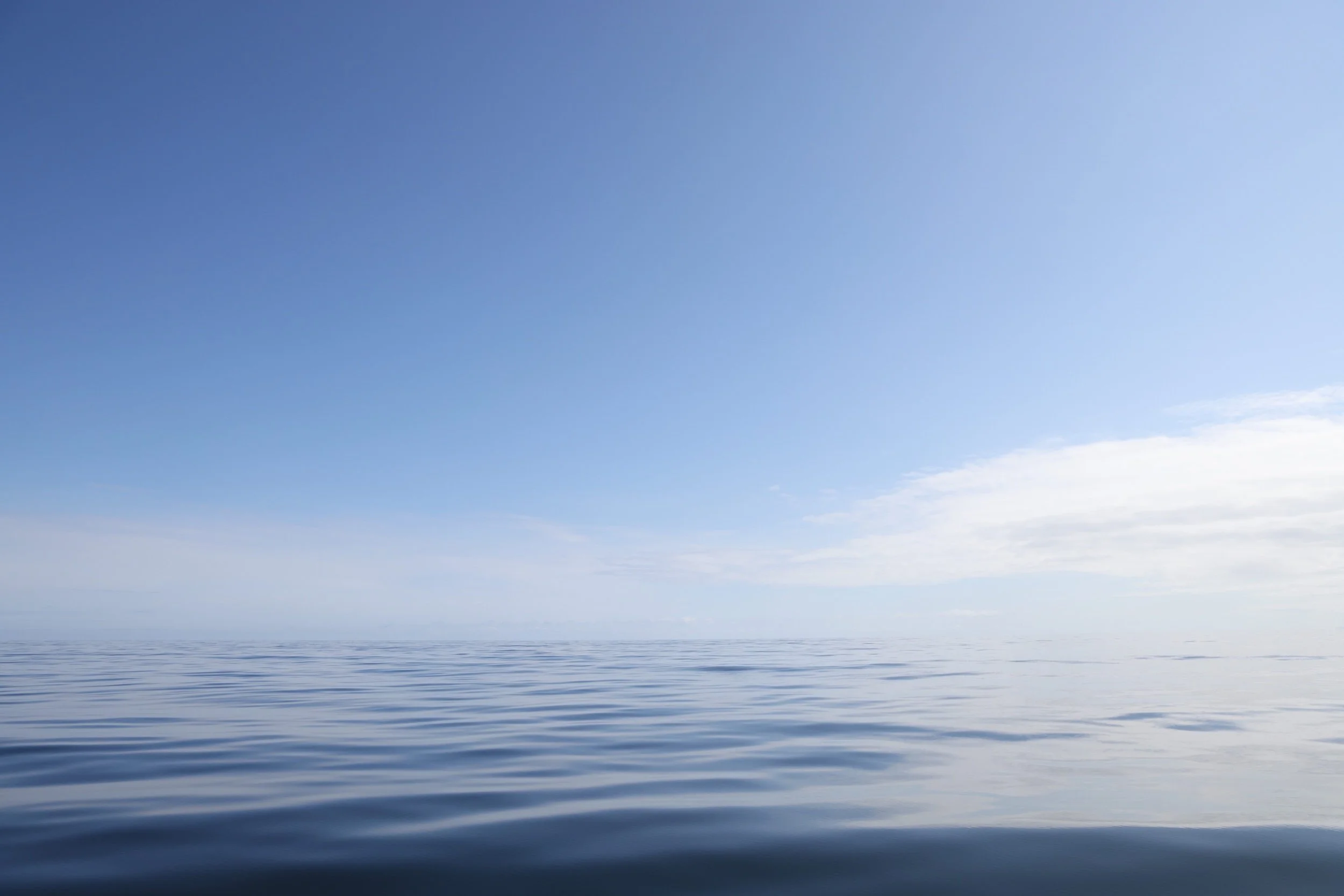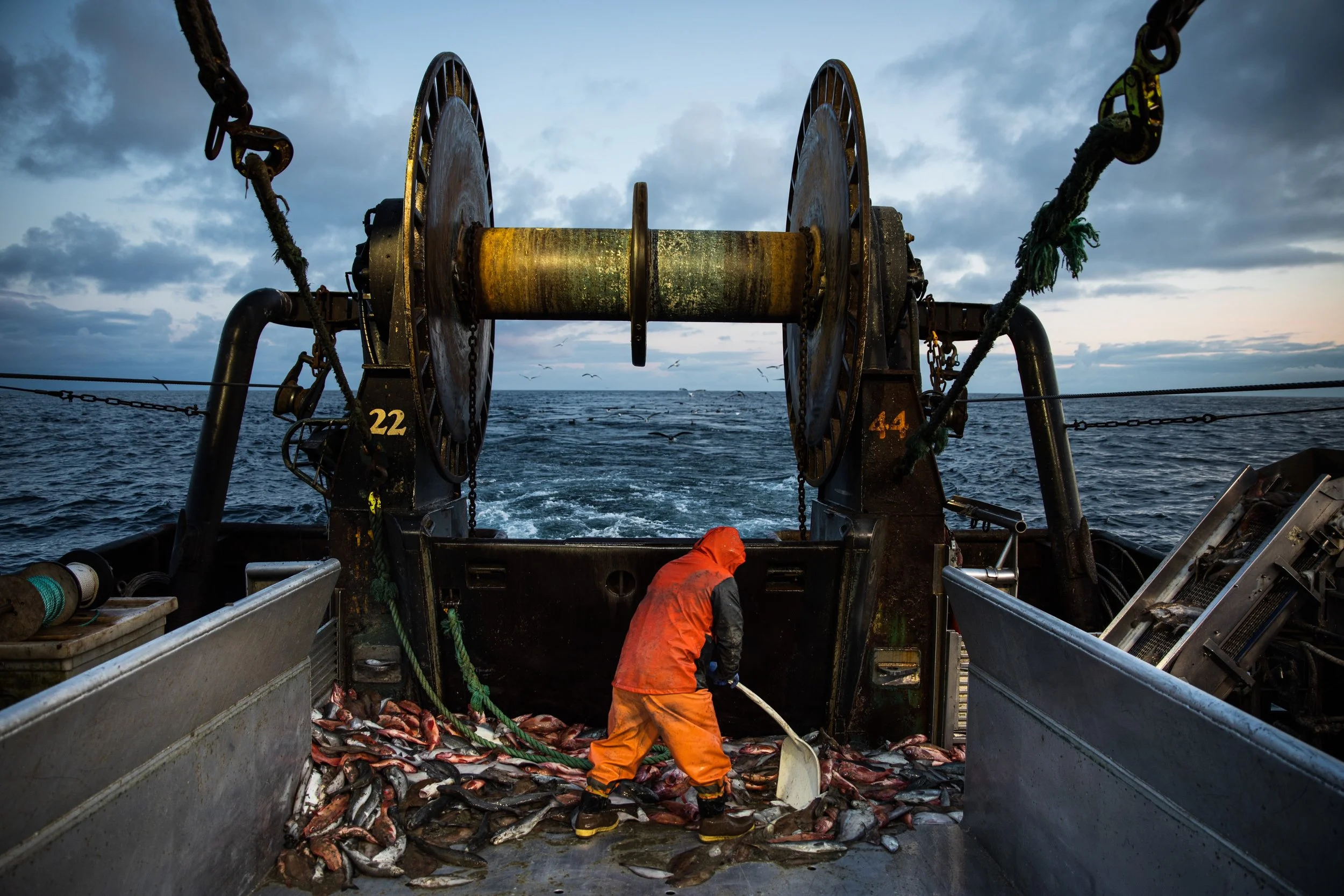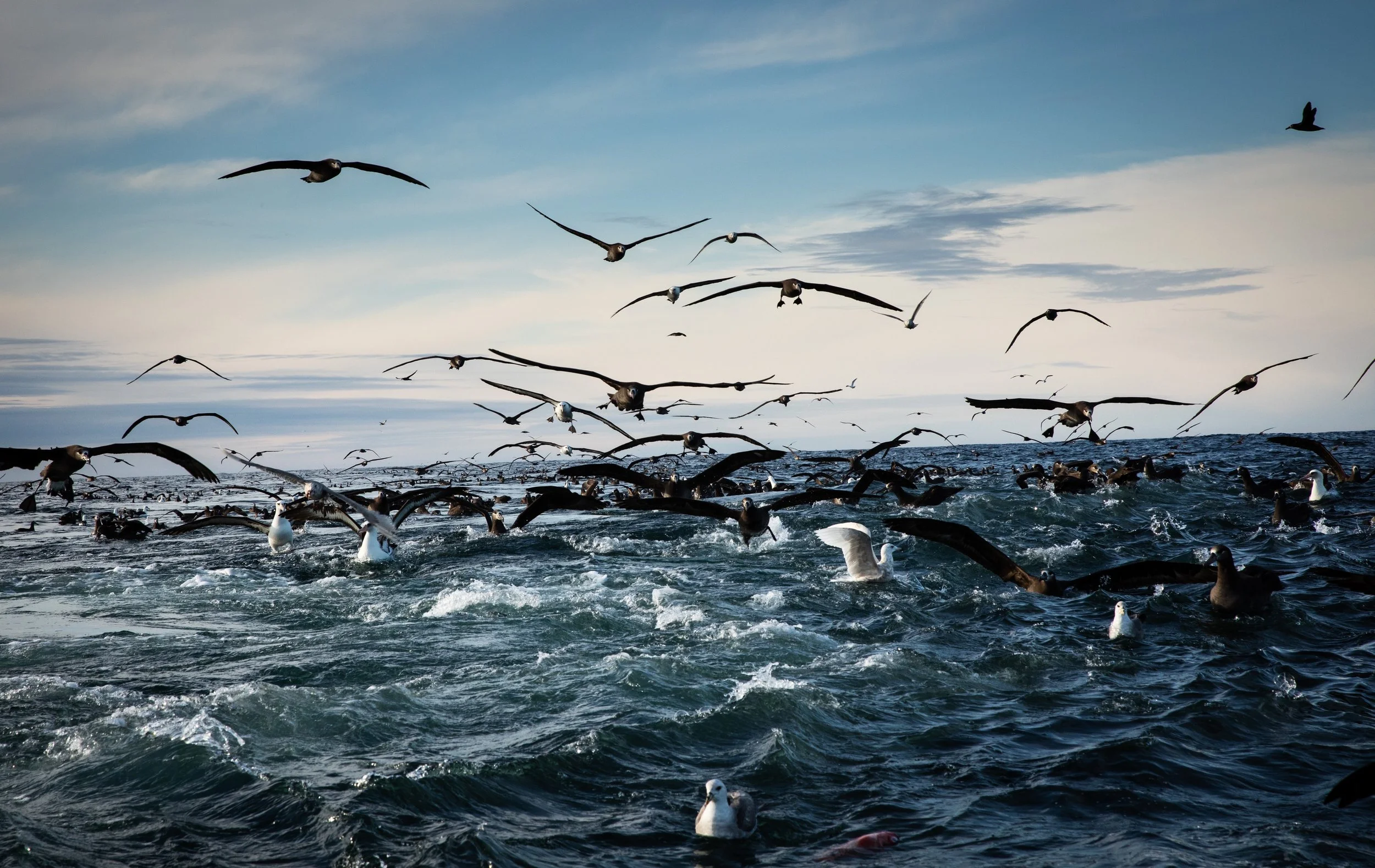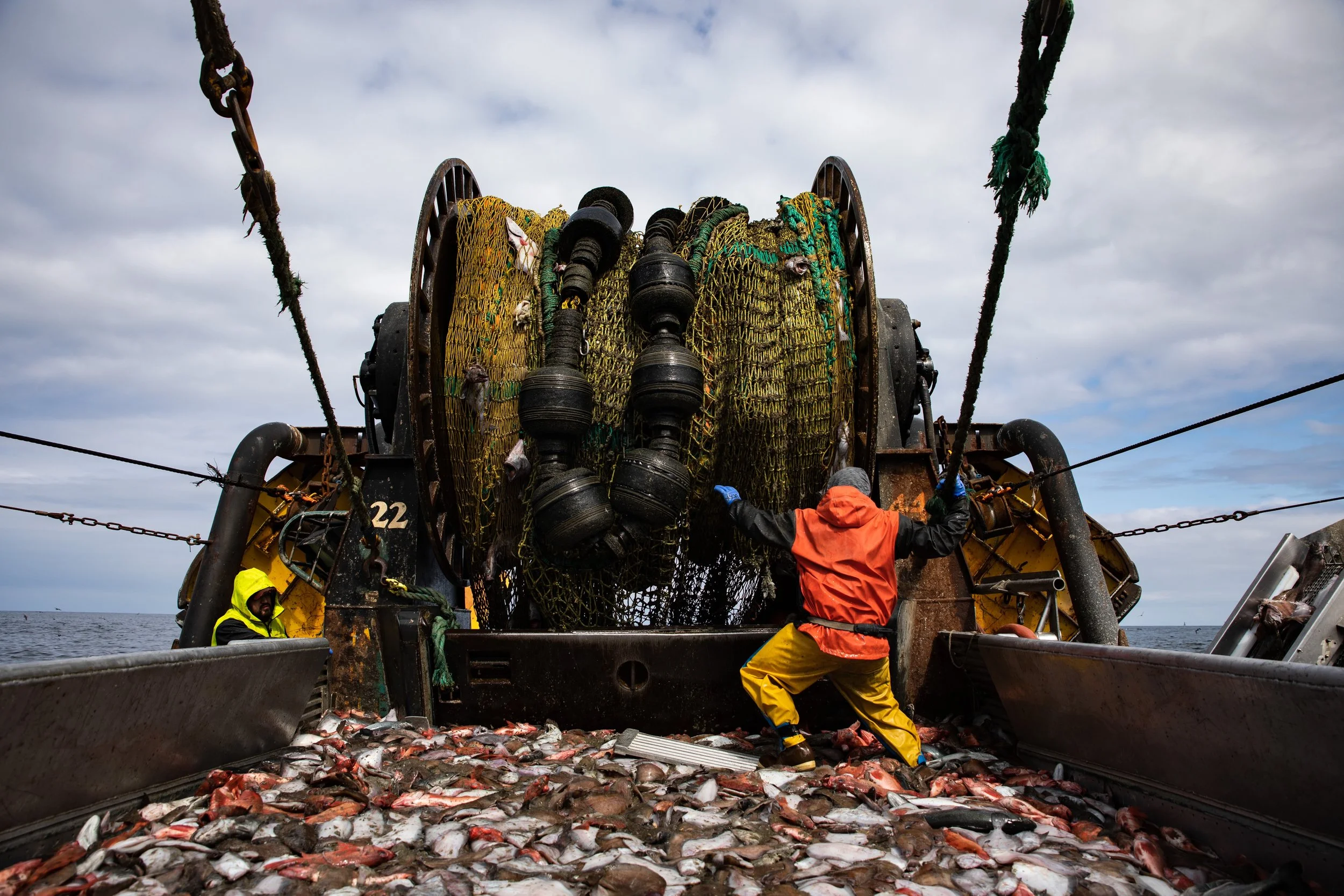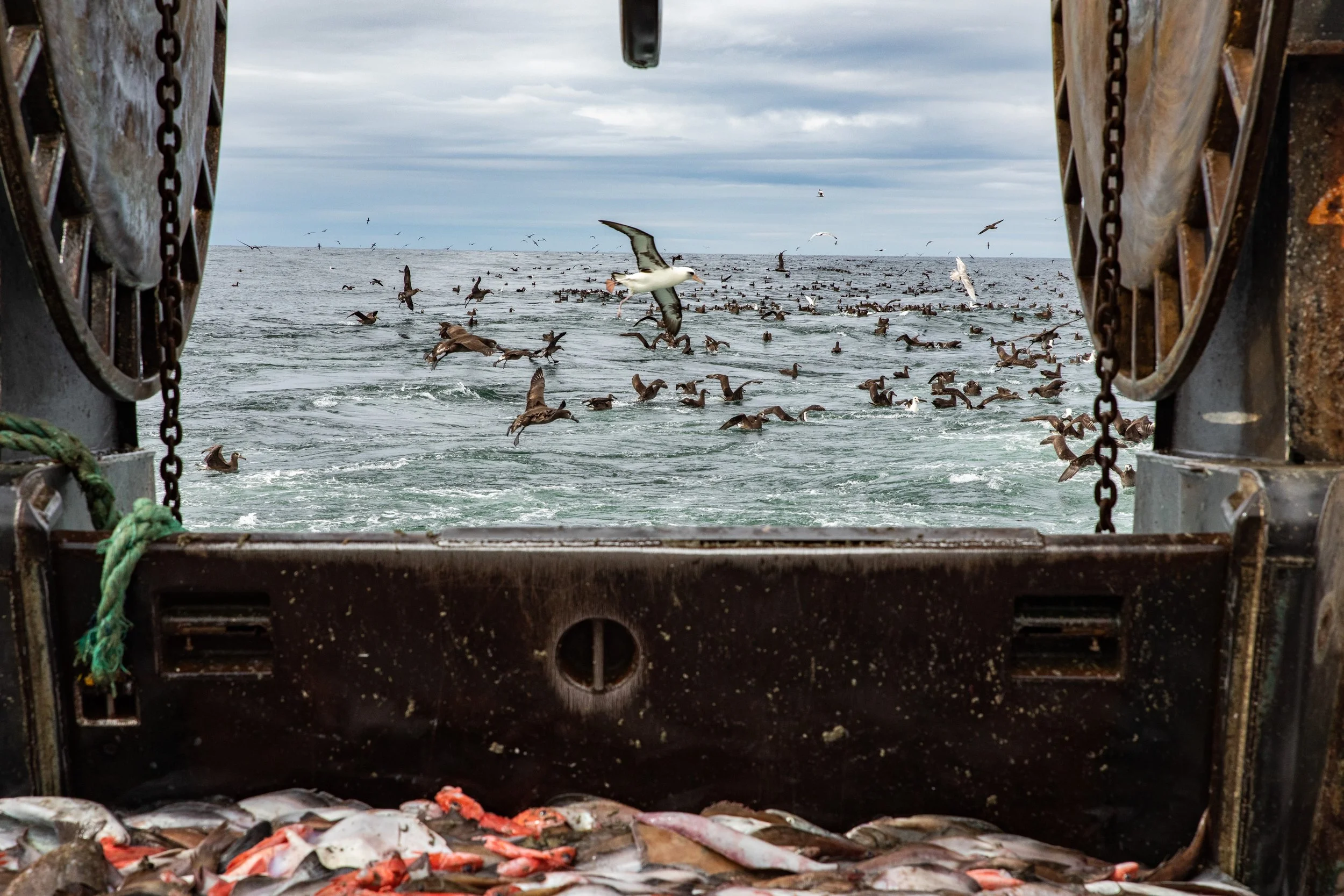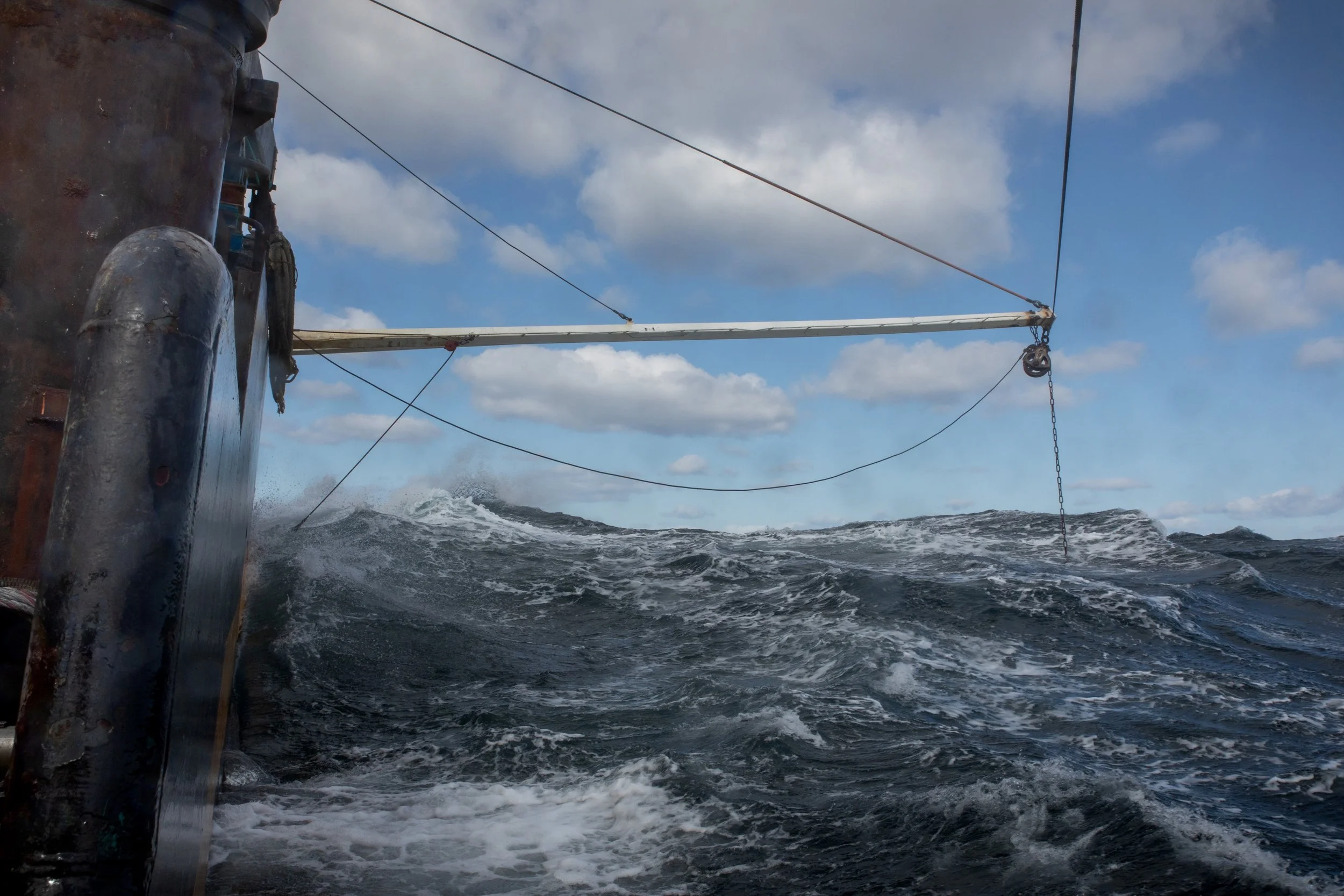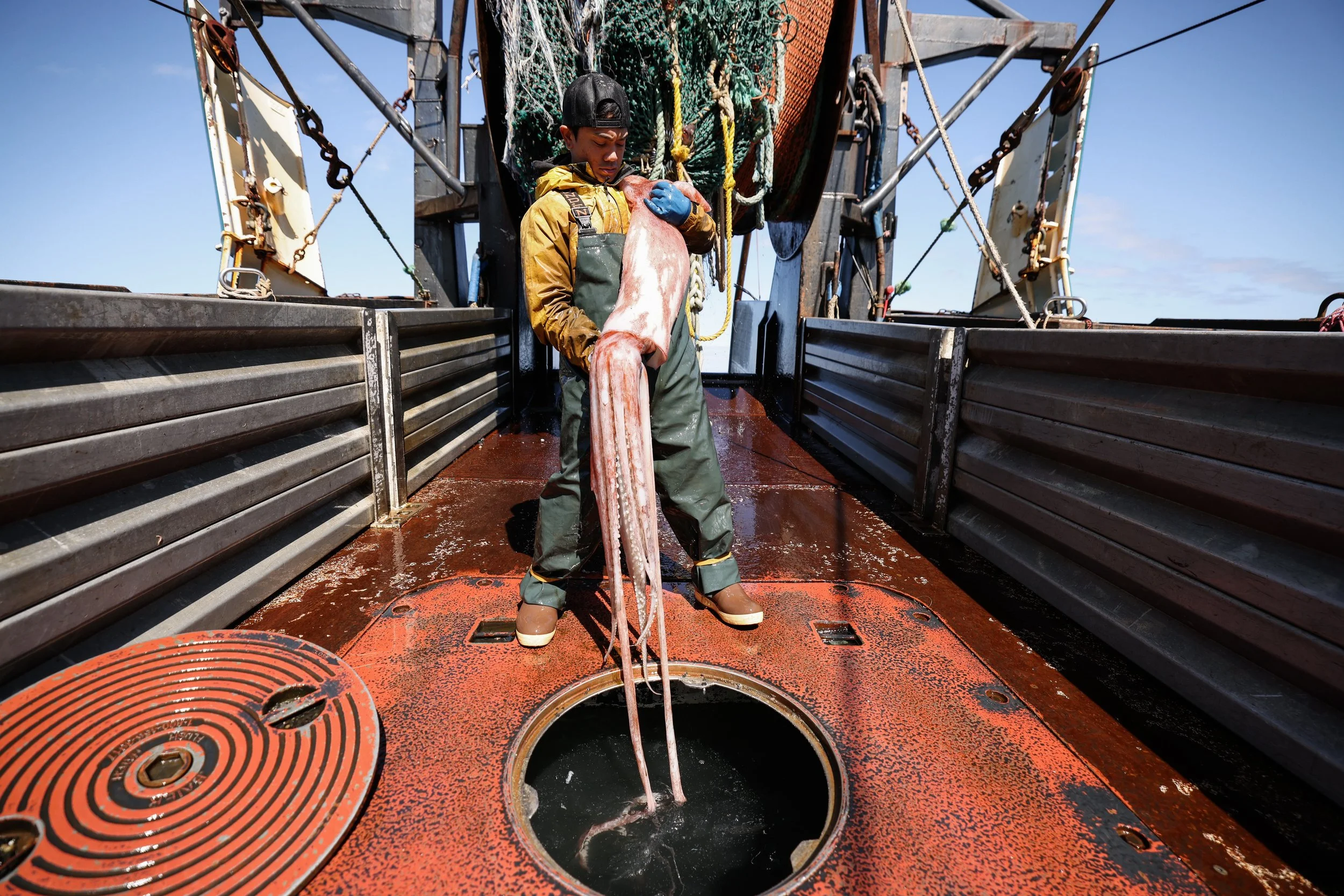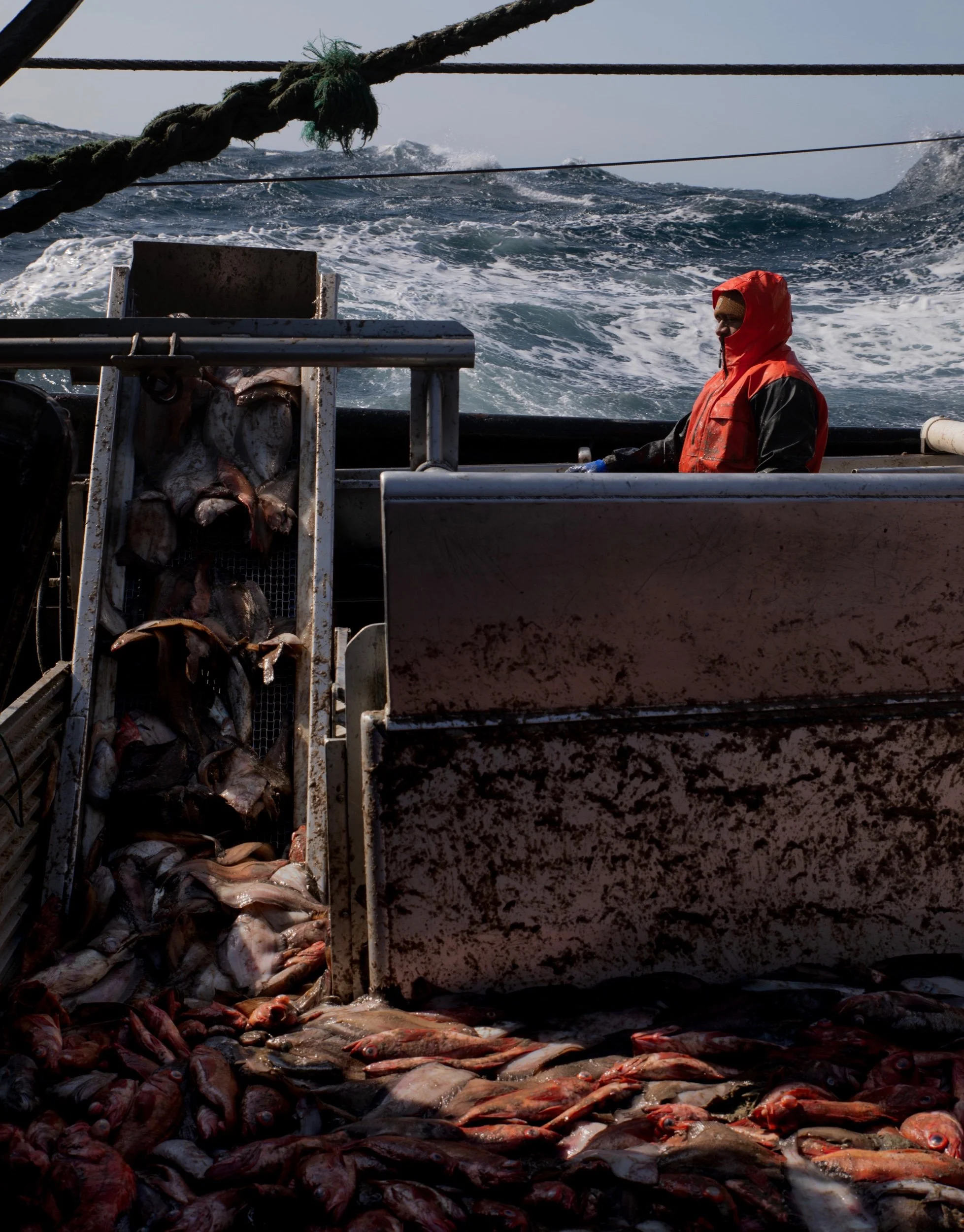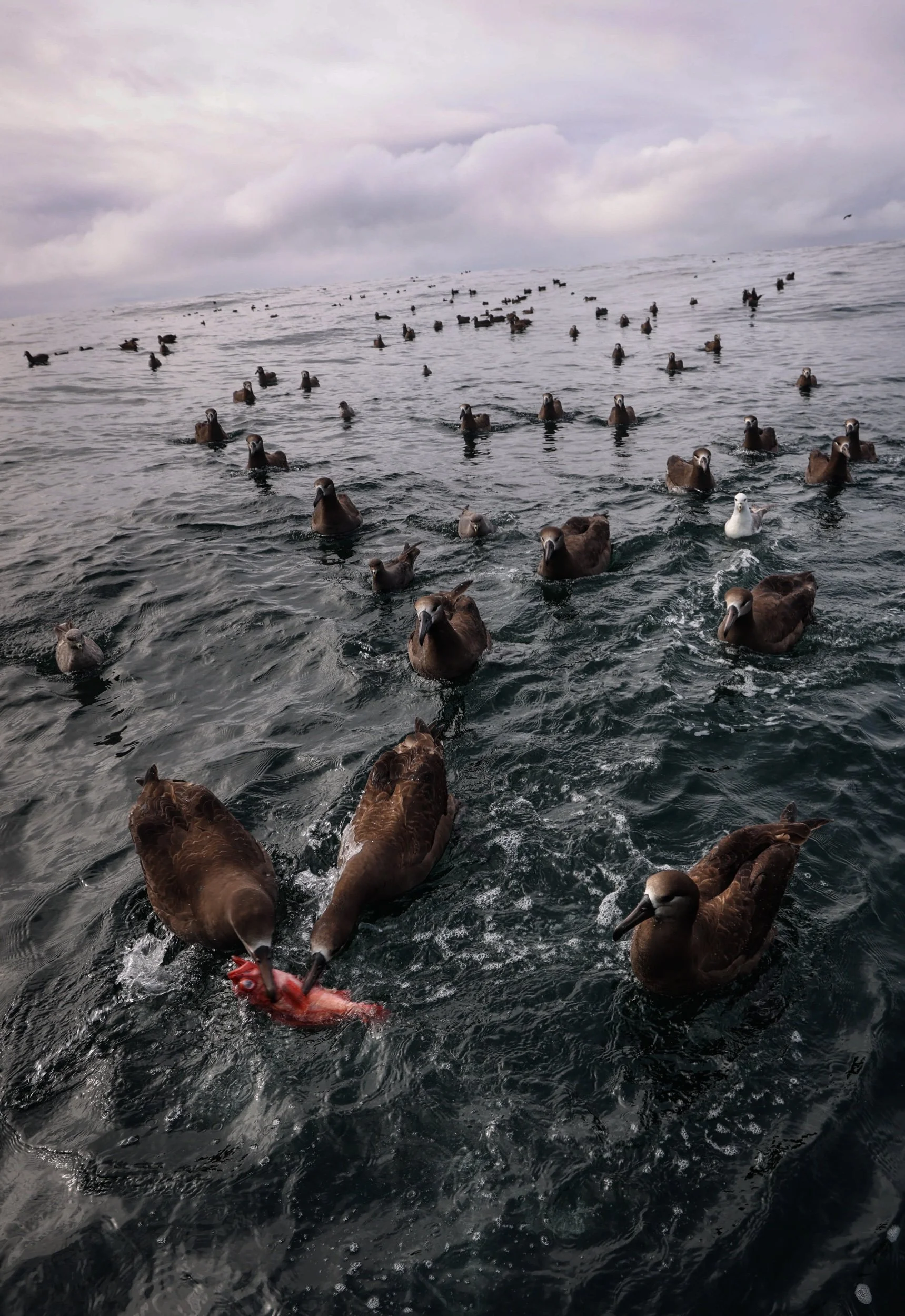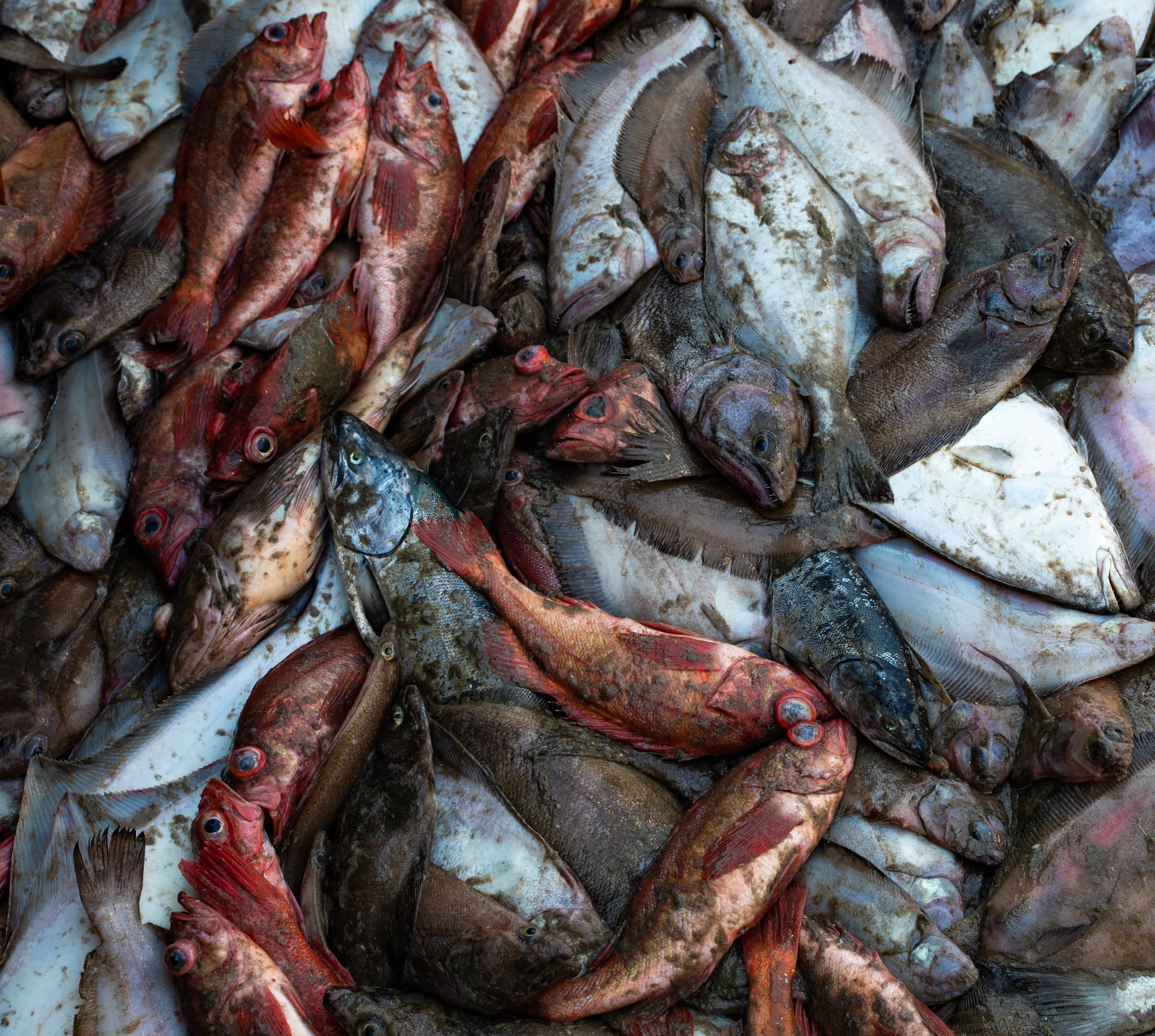Floating in a Tin Can: Poetry on the High Seas
For here
Am I sitting in a tin can
Far above the world
Planet Earth is blue
And there's nothing I can do
-David Bowie
Here, I am a biologist. I work aboard commercial fishing vessels and collect data for the National Marine Fisheries Service (NMFS) and the National Oceanographic and Atmospheric Administration (NOAA). I dissect fish, weigh and measure fish, count fish, identify fish, and I am beginning to identify as a fish.
The photos in this blog are a selection from two years spent working aboard a number of commercial fishing boats as a biologist, from Kodiak, the Gulf of Alaska, to Dutch Harbor, and the Bering Sea. Countless days spent at sea, lows, highs, and everything in between. Pictured are the fishermen I spent my days with, the challenges they face, and the unique perspective I am able to have as an observer on the high seas.
What drives a person to leave their friends and family, the comforts and stability of life on land, to live on the open ocean and catch fish for a living? For many, it is the bounty of the waters. Alaska is home to some of the most productive fisheries in the world. The possibility of a lucrative catch drives them to risk their lives at sea and more often than not, the icy cold waters of Alaska provide. “I don’t get out of bed for less than 1000$ a day” joked one deckhand while fishing for cod in the Bering Sea.
For others, it is a refuge, akin to a detox from the stresses of the modern world. A place to reset the body, mind, spirit and perspective. Stripped of modern distractions and technological dopamine hits, the senses come alive. The slam of a wave hitting the bow, the bite of cold ocean spray, the whine of the hydraulics and the cacophonous chatter of hungry birds; these sensations are somehow more real than anything has ever felt before. You are not a spectator anymore. This is not a dream. The fog has lifted and you are now in the thick of such magnanimous energy, where everything is one and it all moves to the rhythm of the sea. .
Vast flocks of seabirds follow the boat and feast upon the constant discard of cod as these fish are processed. Pictured, Black Footed Kittiwakes fly in tight formation in the twilight hours before dawn.
On deck the action never ceases. Crew work a minimum of 16 hours at a time with several hours to sleep. The man working the block must remain alert at all times. The dangers associated with this position are real and accidents are common.
Tensions are high nearing the end of a 17 day trip aboard a pot boat fishing for cod in the Bering Sea
Crew bleed cod and sort catch between every pot. Technique varies between individuals but speed is imperative as all cod must be bled before the next pot is retrieved.
It is without attachment that you must approach this life. Longing for the world left behind is what has driven many a seaman mad. Be resolute in the present. I once met the most miserable man on a boat. 10 days in to a 14 day trip he told me he wanted to jump overboard. I asked him why and he proceeded to list all of the things he missed about life on land. That evening while working on deck we were graced with the most glorious sunset, decorated with albatross and a gentle sea breeze sweet and full on the face. Not once did I see the miserable man lift his head to take in the sight before him. When work was done he trudged back into the cabin and buried his head in his hands. Confined in the dark cramped cave of his own making, the man was unable to see the beauty around him.
Crew member shovels catch onto a conveyer ramp in the Gulf of Alaska
A boisterous assemblage of Albatross clamoring behind the boat. Black Footed and Layson Albatross squawking and running across the water in anticipation of a loose fish.
Crew member stands on a bin board to prevent himself from sinking into the mass of fish beneath his feet. From one of several two week trips aboard a trawler fishing for flatfish in the Gulf of Alaska.
A trawler plows through swell with the “birds” released which provide stabilization for the boat during heavy seas
Bycatch is common when bottom trawling. This giant squid was caught while bottom trawling for rockfish in the Gulf of Alaska.
Now the sunset hangs low on the horizon in a million shades of fiery warmth. A gull cries in the distance and the glow of a trawlers sodiums illuminate its forsaken loneliness. You look at the heaps of fish piled before you and you imagine yourself as one of them. You wonder if the bulging dying eyes of this pollock have ever seen a setting sun before. What life has this fish led that you will never know? What sunset has this fish admired in the depths of the sea?
An ode to fishes
The little fishes
abandoning themselves to the waves
laugh
and dance
and play
tossed about by the breath of the sea.
Then
embraced by the net of mankind
they say goodbye to the world underneath.
No fear
for fish are selfless.
No hate
for their love is endless.
They know not greed, or jealousy.
Yet
It is only they that know the heart of the sea.
